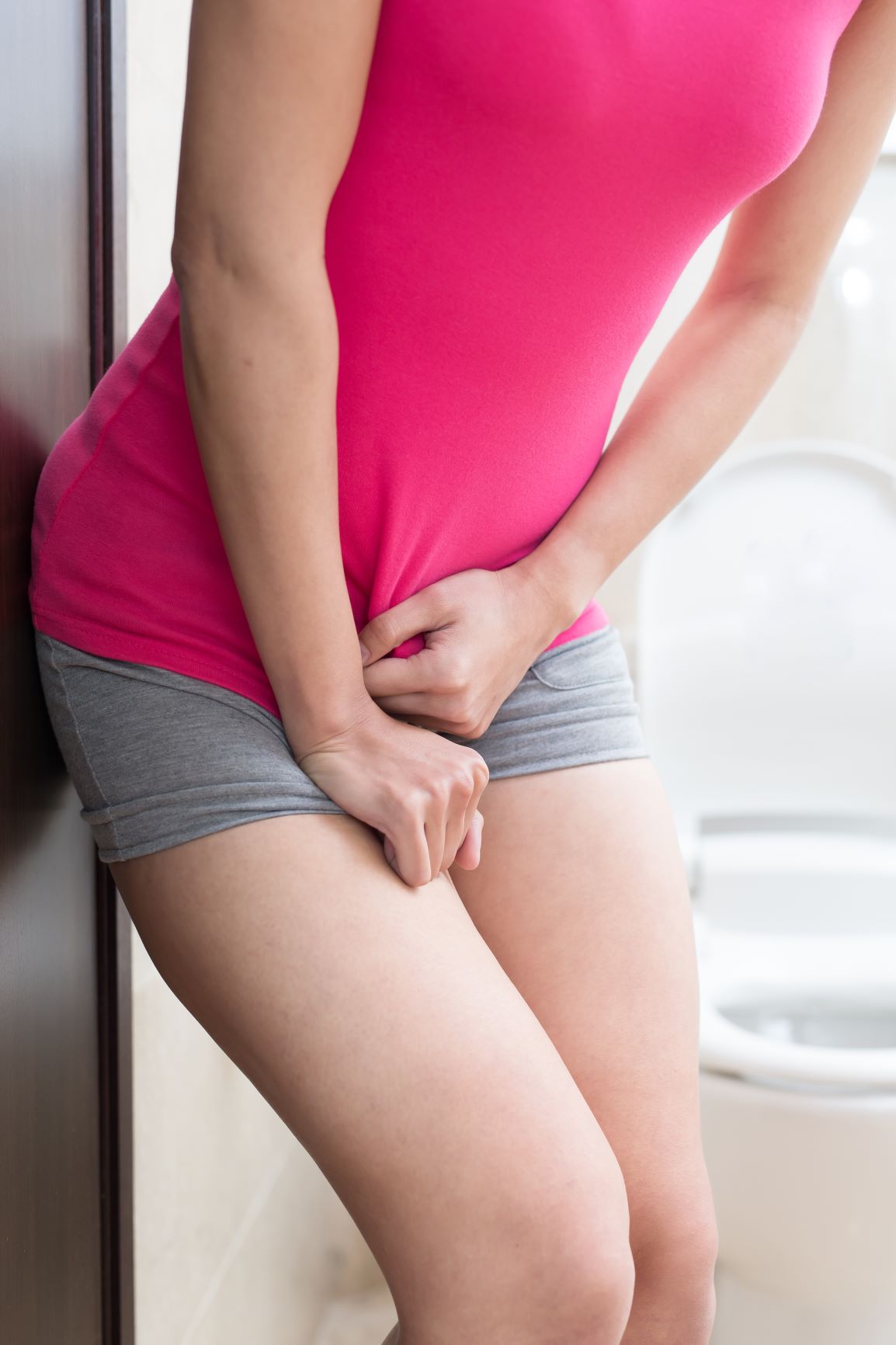Pregnancy cravings often begin in the first trimester as hormonal shifts influence taste and smell...
Read More
If you’ve ever experienced a small leak after sneezing or laughing too hard, you’re not alone.
Women of all ages experience the effects of urinary incontinence, and it’s not just part of aging. In fact, it’s more common than you might think. Women are nearly twice as likely to experience incontinence as men, especially after pregnancy and childbirth.
“Urinary incontinence is a sensitive, personal issue for most women,” explains Inspira urogynecologist Woojin Chong, M.D. “It can be difficult to discuss this and other urogynecologic conditions, even with your doctor, but it’s important to seek care when you need it.”
Creating and transporting our body’s waste is a complex job. The kidneys produce urine after food is broken down and energy is used. It is then transported to the bladder for storage until we head to the bathroom.
When you urinate, the pelvic floor muscles around the urethra relax and the bladder muscles activated in order to push the urine through a tube called the urethra. Around the urethra is a doorway known as the sphincter, which tightens to pinch the urethra or relaxes to allow urination. Throughout this system, millions of nerves translate messages from your muscles to let you know it’s time to go.
If any of these nerves or muscular systems become weakened or injured, you may experience incontinence.
Though it is more common in older women, urinary incontinence can happen at any age. Luckily, incontinence is an issue which can be resolved with treatment.

Common short-term causes of incontinence include certain medications, caffeine and infections, which cause overactivity or inflammation in the bladder, leading to urgency or leaks. These can be resolved with a change in medication or lifestyle habits.
“There isn’t a singular cause that leads to urinary incontinence. Urinary incontinence can be classified as 'stress', 'urge' and 'mixed', Potential risk factors include age, race/ethnicity, obesity, parity, smoking, hysterectomy and diabetes, all of which may have an impact on a woman's incontinence" says Dr. Chong. “Women should focus on staying active, eating healthy and avoiding habits like smoking to prevent a whole host of health issues, including incontinence.”
Long-term conditions that can contribute to incontinence include muscle or nerve damage. In most cases, muscle damage in this region is caused by pregnancy or gynecologic surgery. The weight of a pregnant belly puts added strain on the bladder, restricting it and weakening the muscles. Surgery can also damage the muscles surrounding the bladder and pelvic floor. These muscles can be strengthened over time and may regain much of their effectiveness.
“By practicing pelvic floor exercises, such as Kegels, at least three times a day, it’s possible to significantly improve the strength and stability of pelvic muscles that may have weakened over time, or due to pregnancy,” says Dr. Chong.
Nerve damage is more difficult to treat. This type of damage can come from chronic conditions that cause nerve damage, such as diabetes, or surgical procedures that impact local nerve endings. In these cases, the nerves are not able to process the information coming from the muscles, meaning you will not feel the urge when it’s time to go.
To treat urinary incontinence, your urogynecologist will first recommend at-home options. Kegel exercises, a bladder training schedule or change in lifestyle habits could have a considerable impact on overall bladder function.
If conservative options aren’t effective, depending on types of urinary incontinence, there are other methods for treatment. In women with bothersome stress urinary incontinence, surgical interventions, such as mid-urethral slings or Burch colposuspension are available. In women with urge urinary incontinence, percutaneous nerve stimulation and Botox injection in the bladder are also available. Most of these procedures are done in office.
For more information or the request an appointment, please contact Inspira Medical Group’s Urogynecology Office in Mullica Hill and Vineland at (856) 641-8680.

Pregnancy cravings often begin in the first trimester as hormonal shifts influence taste and smell...
Read More
Beat seasonal allergies and enjoy a sneeze-free summer with our ultimate survival guide full of...
Read More
Sports medicine and rehabilitation help athletes prepare for the spring season by improving...
Read More